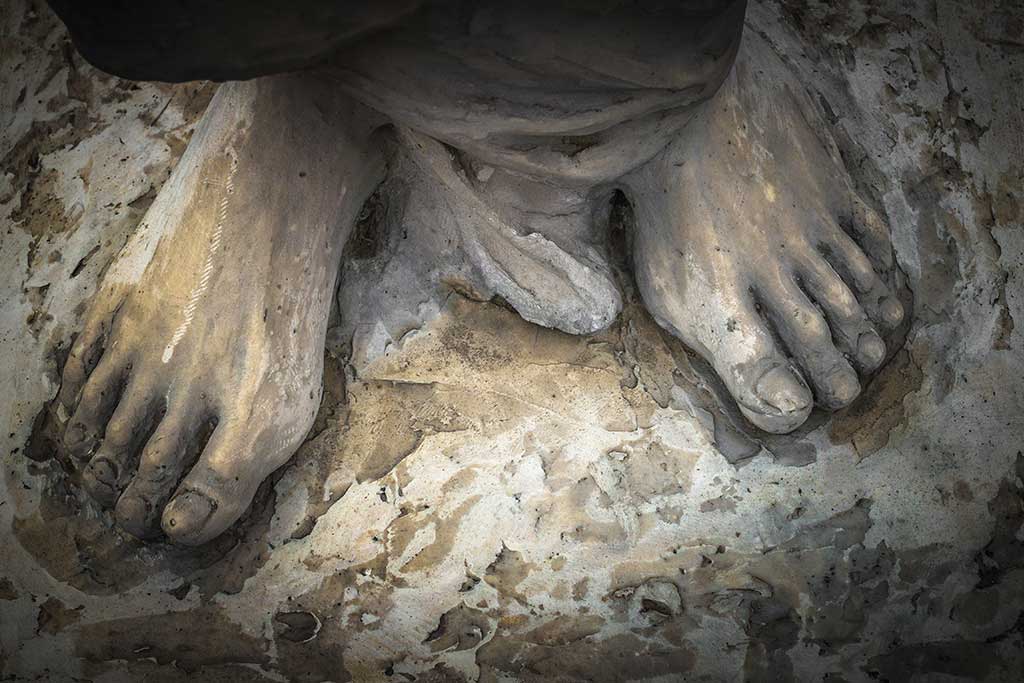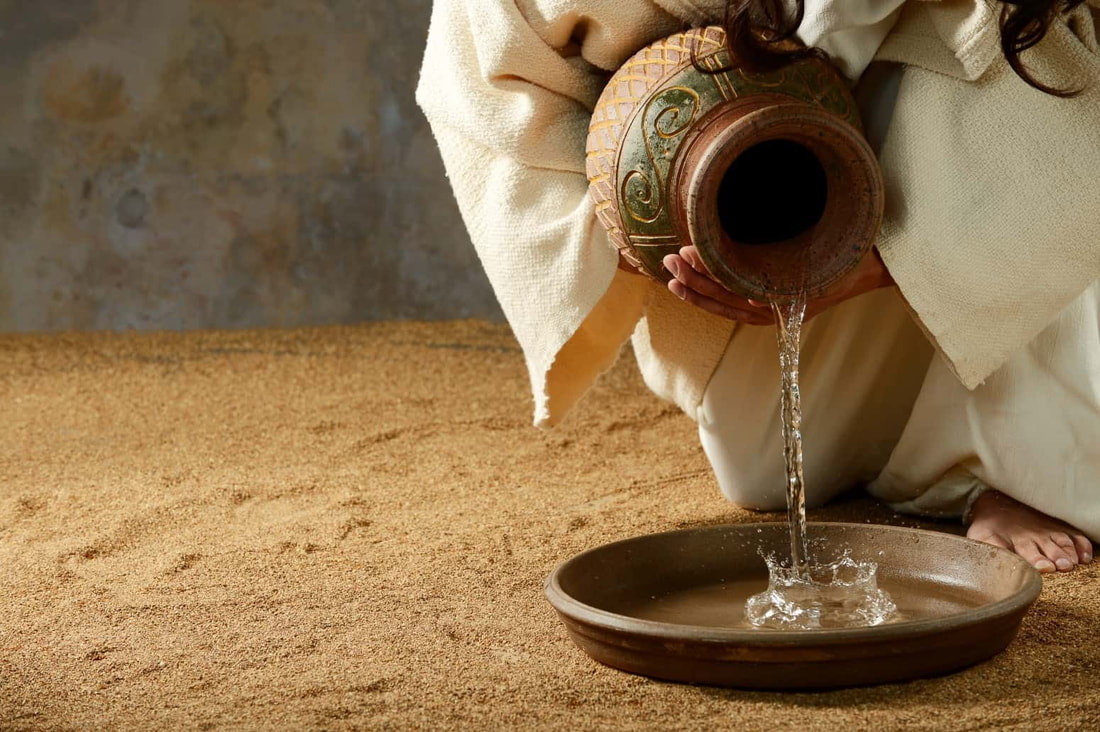Many have wondered
why the king mentioned in Zechariah 9:9-10
would ride a donkey into Jerusalem
rather than a warhorse.
It seems an odd choice for royalty.
Kings ride chargers, don’t they?
In the ancient Middle Eastern world, leaders rode horses if they rode to war,
but donkeys if they came in peace.
First Kings 1:33 mentions
Solomon riding a donkey on the day he was
recognized as the new king of Israel.
Other instances of leaders riding donkeys are Judges 5:10; 10:4; 12:14; and 2 Samuel 16:2.
The mention of a donkey in Zechariah 9:9-10
fits the description of a king who would
be “righteous and having salvation, gentle.”
Rather than riding to conquer, this king would enter in peace.
Zechariah 9:10 highlights this peace: “I will take away the chariots from Ephraim and the war-horses from Jerusalem, and the battle bow will be broken.
He will proclaim peace to the nations. His rule will extend from sea to sea and from the River to the ends of the earth.”
Note the many details symbolic of peace:
- “Take away the chariots”: an end to the main vehicle of war.
- “Take away . . . the war-horses”: no need for horses used in war.
- “The battle bow will be broken”: no need for bows or arrows for fighting.
- “He will proclaim peace to the nations”:
His message will be one of reconciliation.
- “His rule shall be from sea to sea”: the King will control extended territory with no enemies of concern.
Jesus fulfills this prophecy of Zechariah.
The worldwide peace proclaimed by this humble King will be a fulfillment of the angels’ song in Luke 2:14: “Glory to God in the highest, And on earth peace, goodwill toward men!” (NKJV). Significantly, Jacob’s blessing on his son Judah includes a reference to a donkey and a donkey’s foal (Genesis 49:11). Jesus is from the tribe of Judah.
Zechariah 9:9 was fulfilled by the triumphal entry as Jesus rode into Jerusalem on the first Palm Sunday (Matthew 21:1-11; Mark 11:1-11; Luke 19:28-44; John 12:12-19). Verses 10 and following refer to a future time when the Messiah will reign after defeating His enemies at the second coming.B
Jesus rode into Jerusalem on the back of a borrowed donkey’s colt, one that had never been ridden before. The disciples spread their cloaks on the donkey for Jesus to sit on, and the multitudes came out to welcome Him, laying before Him their cloaks and the branches of palm trees. The people hailed and praised Him as the “King who comes in the name of the Lord” as He rode to the temple, where He taught the people, healed them, and drove out the money-changers and merchants who had made His Father’s house a “den of robbers” (Mark 11:17).
Jesus’ purpose in riding into Jerusalem was to make public His claim to be their Messiah and King of Israel in fulfillment of Old Testament prophecy. Matthew says that the King coming on the foal of a donkey was an exact fulfillment of Zechariah 9:9, “Rejoice greatly, O Daughter of Zion! Shout, Daughter of Jerusalem! See, your king comes to you, righteous and having salvation, gentle and riding on a donkey, on a colt, the foal of a donkey.” Jesus rides into His capital city as a conquering King and is hailed by the people as such, in the manner of the day. The streets of Jerusalem, the royal city, are open to Him, and like a king He ascends to His palace, not a temporal palace but the spiritual palace that is the temple, because His is a spiritual kingdom. He receives the worship and praise of the people because only He deserves it. No longer does He tell His disciples to be quiet about Him (Matthew 12:16, 16:20) but to shout His praises and worship Him openly. The spreading of cloaks was an act of homage for royalty (see 2 Kings 9:13). Jesus was openly declaring to the people that He was their King and the Messiah they had been waiting for.
Unfortunately, the praise the people lavished on Jesus was not because they recognized Him as their Savior from sin. They welcomed Him out of their desire for a messianic deliverer, someone who would lead them in a revolt against Rome.
There were many who, though they did not believe in Christ as Savior, nevertheless hoped that perhaps He would be to them a great temporal deliverer. These are the ones who hailed Him as King with their many hosannas, recognizing Him as the Son of David who came in the name of the Lord. But when He failed in their expectations, when He refused to lead them in a massive revolt against the Roman occupiers, the crowds quickly turned on Him. Within just a few days, their hosannas would change to cries of
“Crucify Him!”
(Luke 23:20-21).
Those who hailed Him as a hero
would soon
reject and abandon Him.
The story of the triumphal entry is one of contrasts,
and those contrasts contain applications to believers. It is the story of the King who came as a lowly servant on a donkey, not a prancing steed, not in royal robes, but on the clothes of the poor and humble. Jesus Christ comes not to conquer by force as earthly kings but by love, grace, mercy, and His own sacrifice for His people.
His is not a kingdom of armies and splendor but of
lowliness and servanthood.
He conquers not nations but hearts and minds.
His message is one of peace with God, not of
temporal peace.
If Jesus has made a triumphal entry into our hearts, He reigns there in peace and love.
As His followers, we exhibit those same qualities, and the world
sees the true King living and reigning in triumph in us.
Psalm 8:5 is a messianic prophesy fulfilled by Jesus.
It says, "Yet you have made him a little lower than the heavenly beings and crowned him with glory and honor" (Psalm 8:5).
The writer of Hebrews refers to Psalm 8:4–6 in talking about Jesus.
Hebrews 2:5–9 says, "For it was not to angels that God subjected the world to come, of which we are speaking. It has been testified somewhere, 'What is man, that you are mindful of him, or the son of man, that you care for him? You made him for a little while lower than the angels; you have crowned him with glory and honor, putting everything in subjection under his feet.' Now in putting everything in subjection to him, he left nothing outside his control. At present, we do not yet see everything in subjection to him. But we see him who for a little while was made lower than the angels, namely Jesus, crowned with glory and honor because of the suffering of death, so that by the grace of God he might taste death for everyone."
These Psalms and Hebrews verses refer to Jesus as incarnate, as man. Jesus, existent since before creation, came to earth as a man,
lower than the heavenly beings for a time.
Philippians 2:7 says that Jesus "emptied himself, by taking the form of a servant, being born in the likeness of men."
Paul goes on to summarize Jesus's mission
and eventual place in heaven, above all.
''And being found in human form, he humbled himself
by becoming obedient to the point of death, even death on a cross.
Therefore God has highly exalted him
and bestowed on him the name that is above every name,
so that at the name of Jesus every knee should bow,
in heaven and on earth and under the earth,
and every tongue confess that
Jesus Christ is Lord,
to the glory of God the Father"
(Philippians 2:8–11).
Jesus being made a little lower than the angels
and taking on a physical body eternally
does not diminish His divinity.
He is fully God,
yet chose to humbly take on human flesh
so that He could make a way of salvation for us
(Luke 19:10; John 3:16–18; 14:6).
Jesus is now in heaven interceding
for those who believe in Him (Romans 8:34)
as He prepares a place for those who believe (John 14:1–3).





 RSS Feed
RSS Feed
























































